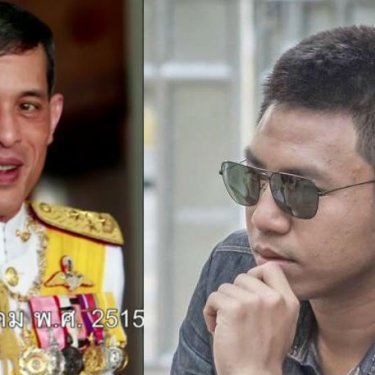How Thailand’s junta uses lèse-majesté charges to censor information

Condemning yesterday’s decision by a Thai court to put a young pro-democracy activist on trial for sharing a BBC profile of the new king on Facebook, Reporters Without Borders (RSF) calls on the authorities to stop using the lèse-majesté law both to jail critics and to deter the media from covering the monarchy.
Student activist Jatupat “Pai” Boonpattararaksa has been held since 2 December for sharing the BBC’s Thai-language profile of King Maha Vajiralongkorn, who formally agreed to succeed his late father on 1 December. It detailed some of his past indiscretions and old lèse-majesté cases.
As well as sharing the profile, Jatupat posted quotes from it. No charges have been brought against the BBC but Jatupat is accused of defaming the new king in violation of article 112 of the penal code and the Computer Crimes Act.
A judge refused to free him on bail on 27 December and extended his detention until yesterday, when he was formally indicted.
Jatupat was already known to the authorities as a pro-democracy activist and has been arrested in the past for taking part in anti-government demonstrations. There has been a great deal of comment on social networks about the decision to charge him with lèse-majesté, with many seeing it as politically motivated.
“It is outrageous that an Internet user can be charged under the lèse-majesté law just for sharing an article he did not write and for which the author, the BBC, is not being prosecuted,” said Benjamin Ismaïl, the head of RSF’s Asia-Pacific desk.
“This blatant inconsistency fools no one. It is a dissuasive message with more than one target. Pro-democracy activists are being told that the regime can use its legislative arsenal to neutralize them at any time, while Internet users are being reminded that sensitive content critical of the regime will not be tolerated online.
“At the time, journalists and media are being warned that the regime is still monitoring content closely and that, if at any time they dare to defy the prevailing self-censorship, their courage could have dramatic consequences for their readers. We call for withdrawal of the charges against Jatupat and we reiterate our request for the repeal of article 112 of the penal code.”
“Illegal” online content is punishable by imprisonment under several Thai laws including the Computer Crimes Act, which was used to prosecute the news website Phuketwan’s journalists in 2013.
But journalists’ biggest fear is being charged with lèse-majesté (defaming the monarchy), which is publishable by 3 to 15 years in prison under article 112. It even makes them think twice about covering lèse-majesté cases or searching online for lèse-majesté-related terms.
When media outlets cover lèse-majesté cases, they refrain from detailing the charges because that could also be regarded as an act of lèse-majesté.
In a November 2015 report on the situation in Thailand, entitled “Media hounded by junta since 2014 coup,” RSF urged the Thai authorities to stop using draconian legislation to gag critical and independent media, censor the Internet and spy on bloggers and anyone posting “critical” information on social networks.
Ranked 136th out of 180 countries in RSF’s 2016 World Press Freedom Index, Thailand has seen drastic curbs placed on media freedom since the military staged a coup in May 2014.



